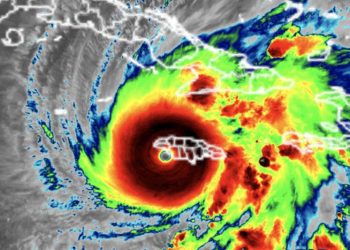The heart of Indonesia has always been the sea. There are over 17,000 islands and to vary livelihood with identity, there come some definite maritime traditions. Chanting turquoise waters with wooden boats, drums beating the welcome for fishing fleets home- all these develop into nation-wide festivals, celebrating each and every bit of culture, unity and pride held together.
Guardians of the Archipelago’s Identity
Maritime festivals are of great importance at the local level. Besides techniques, stories, and songs- a value-based principle that teaches respects for the ocean by which Indonesian fishermen have learned generation after generation- these festivals help in the preservation of such wealth. Through an amalgamation of spirituality, craftsmanship, and performance, ceremonies were conducted.
The Festival Perahu Baganduang at West Sumatra or the Sandeq Race at West Sulawesi shows boats built by traditional craftsmen. These are wooden boats͏ made without nails and only use sail to͏ move, showing many years of skill and changes. Every festival is like a real school where young people see that for old fishers, the sea is not just a source of things but a way of life.
Celebrating Fishing Traditions and Culinary Heritage
The daily rhythm of coastal life becomes a spectacle during these celebrations. Fishermen demonstrate traditional casting techniques, net weaving, and fish preservation methods that have sustained communities for centuries. Alongside these skills, coastal towns showcase their culinary artistry–spiced grilled fish, shrimp satay, and dishes prepared with freshly caught seafood.
Visitors are welcomed with open arms to join feasts, music performances, and communal prayers for safe voyages. Through these experiences, Indonesia’s maritime culture reveals its core philosophy: harmony between humanity and nature.
Platforms like 1xBet Philippines have helped amplify the visibility of such events by sharing updates and coverage that attract both local and international attention. This digital reach encourages cultural tourism, allowing people across the world to discover Indonesia’s coastal diversity.
Economic Impact and Tourism Growth
Beyond heritage, maritime festivals are engines of economic opportunity. Small coastal towns see a surge of visitors during these events, bringing income to hotels, restaurants, markets, and transport services. Artisans who craft sails, ornaments, or instruments find new customers, while food vendors and tour operators benefit from the flow of travelers.
Government and local authorities often collaborate with cultural organizations to expand these festivals as sustainable tourism assets. Investment in infrastructure–such as ports, roads, and digital access–creates long-term benefits that outlast the celebrations. The ripple effect extends beyond tourism, strengthening community resilience and pride.
Mobile technology has also deepened engagement. Through apps like 1xBet mobile, enthusiasts follow schedules, updates, and results from traditional competitions. This kind of digital connectivity brings distant communities together, linking local traditions to global audiences while preserving authenticity.
The Thrill of Friendly Competition
Boat races are among the most anticipated highlights of maritime festivals. In coastal towns like Makassar, Ambon, and Ternate, vividly painted boats glide across the water to the cheers of thousands. Each crew represents not just a village but a legacy, their teamwork symbolizing the spirit of cooperation that defines island life.
These events often include friendly betting among locals and tourists, adding an extra layer of excitement and camaraderie. Modest wagers on boat races or fishing contests turn into moments of shared laughter and conversation. For many visitors, this sense of participation transforms the spectacle into a personal connection with Indonesia’s maritime soul.
Some participants engage in such interactions through digital platforms like 1xBet slot, where the spirit of entertainment meets cultural celebration. It reflects a natural evolution of how tradition adapts to modern engagement without losing its communal heart.
Music, Dance, and Shared Celebration
Music and dance are central to these festivals. Folk songs played on bamboo flutes and drums recount tales of brave sailors and legendary sea journeys. Dancers mimic the motion of waves, the pull of nets, and the flight of seabirds, turning performance into visual poetry that connects land and sea.
At night, the shore lights up with lanterns. The reflections on the water create a bridge between people and the divine. Visitors often describe the experience as both solemn and joyful, proving that maritime culture is deeply spiritual and equally welcoming.
Sustainability and the Future of Maritime Heritage
As Indonesia confronts overfishing and climate change, maritime festivals have taken on new significance. Many now include workshops on marine conservation and sustainable fishing. Youth volunteers organize beach cleanups and reef restoration as part of the festivities, ensuring that beauty endures alongside responsibility.
Partnerships among local governments, NGOs, and tourism boards show that economic growth and environmental care can coexist when guided by respect for tradition. The festivals embody a vision of development that uplifts communities while protecting the sea that sustains them.
A Living Bridge Between Past and Future
Local maritime festivals are not just nostalgic tributes; they are living bridges that connect the past with the future in Indonesia. Every dance, every race, every sharing of food imparts a lesson of cooperation, endurance, and respect for the rhythm of nature’s ways.
For a traveler, who is after authenticity, the festivals are much more than just a spectacle to look at; they give complete immersion into a world wherein the community, craftsmanship, and even the ocean are all inseparable. And for an Indonesian, it reforms something timeless–that the heart of the nation still beats in rhythm with the tides.





